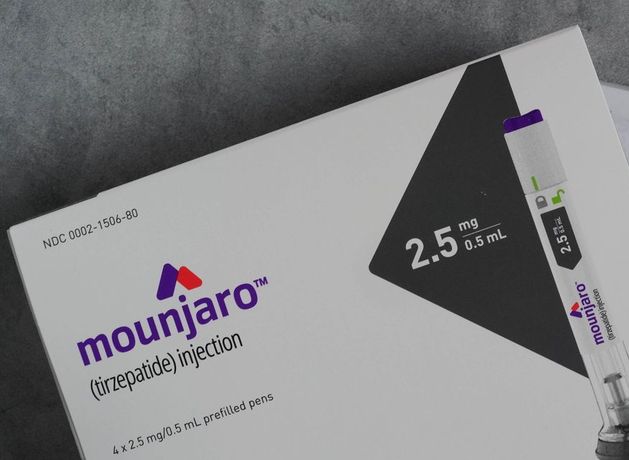Kerry councillor John O’Donoghue says the new arrival could cut costs for the public health service and vastly improve lives
Councillor John O’Donoghue said the drugs would be a game changer for patients and could even take pressure off the public health system.
Mounjaro, which became available in Ireland in February this year, is a weight loss drug manufactured by the American pharmaceutical company Lilly.
Like its precursor Ozempic, Mounjaro can be used to treat type two diabetes, but it can also be used to supress appetite for people with obesity.
Mr O’Donoghue said: “I definitely think it’s something the government should look at funding… it’s a fact that probably in every country in the world the more money you have the better access you can have to better healthcare, but in saying that, this seems to be something that would make such a fundamental difference.
“For life changing medicine it seems such a simple solution in terms of how its administered and that there’s no operations involved.
“In first world countries, obesity is not a rich person’s problem and its not a poor person’s problem. It goes across all sectors, all ages, so I really think it’s a no brainer.”
Mounjaro works by increasing the sensitivity of stomach receptors, reducing cravings and so-called “brain chatter” experienced by people with food addictions.
The drug is self-administered, usually once a week, with little to no help required from doctors.
Mounjaro has been labelled the ‘King Kong’ of weight loss due to its improved results over competitors, with people in clinical trials experiencing a weight-loss of 20.2 per cent, compared to 13.7 per cent for semaglutide (which is sold under the brand name Ozempic).
Due to its powerful effects, the medicine is limited to patients with a BMI over 30, or those with a weight related condition such as type two diabetes and a BMI over 27.
The lead GP at Duality Healthcare’s Newry branch, Karen Kiernan, has seen the life changing effects of the drug first hand. She said of every patient she had treated with the medicine, not a single one left without a positive result.
Some patients had indefinitely delayed joint replacements due to the loss of a significant amount of weight.
“I have seen the drug transform lives. The mobility of my cohort of patients really starts to go as they get older and they’re carrying a lot of weight, and they just become so socially isolated. They’re not able to go out with their friends, they’re not able to travel and go on holiday,” said Dr Kiernan.
“I’ve absolutely loved this summer, seeing patients who started treatment last year, and they’ve come round this summer. I had one lady go on a walking holiday to Slovenia with her friends, another lady off in a campervan around France and another lady doing up her house. These patients are getting their lives back.”
The catch, however, is that Mounjaro is very expensive, with the highest dose of the medicine costing around €475 per month.
Dr Kiernan referred to the medicine as a “drug for the wealthy” and said there were many who would benefit from it but can’t afford it.
While Mr O’Donoghue acknowledged the current price was an issue for the public health sector, he emphasised the potential savings, given the knock-on effects of making the medicine publicly available.
“I think the point that keeps getting missed is that money is saved in the long run because you have people that might be presenting with diabetes and various heart problems. The potential reduction in the risk of heart attacks, strokes and related issues would have to be factored into the savings too,” he said.
“The big problem in the HSE seems to be the non-urgent surgery, the operations that are important to get done, but the patient isn’t going to be dead within a month. They’re the ones that are constantly being put on the long finger.
“For some people who are waiting for a hip replacement, by the time they get it they’ve put on loads of weight because they’ve haven’t been active and suddenly, they have a whole raft of other health issues.
“This just going to free up so much within our health system. When you think of what’s involved in heart surgery, there’s a least one surgeon involved and a whole operating theatre team working. If there’s a big reduction in the numbers of people going to theatre, by extension that has to free up a lot of staff in the HSE.”
Funded by the Local Democracy Reporting scheme
